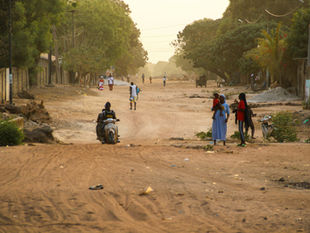.png)
LSESU WAR STUDIES SOCIETY
The M23 rebel group has forcibly seized control of Goma, the Democratic Republic of the Congo’s largest eastern city. Goma’s capture has caused “unimaginable” suffering: since Sunday, hundreds of Congolese civilians have been killed, and thousands more have been wounded. The fighting marks a dramatic escalation in the North Kivu region, and with hospitals struggling and battles intensifying, UN officials warn of a “nightmare” unfolding. As the already dire humanitarian conditions worsen, all eyes should be on Goma.
M23 – or the March 23 Movement – is a rebel group led by ethnic Tutsis. Tutsis were the primary target of the 1994 Rwandan genocide as they made up the majority of the 800,000 who were slaughtered by Hutu extremists. Today, M23’s offensive is linked to the genocide: the group justifies taking up arms to protect their rights as a minority group. In the rebels’ eyes, Congolese Tutsis are in danger because one of the Hutu groups, the Democratic Forces for the Liberation of Rwanda (FDLR) is still active in eastern DRC.
This is not the first time the M23 have made an advance on Goma. In 2021, the group claimed temporary control for 10 days before withdrawing under international pressure. Fighting has occurred since then, but M23 appear to have become increasingly better trained, armed and equipped. Many observers hold Rwanda accountable: according to UN Peacekeeping official chief Jean-Pierre Lacroix, “there is no question that there are Rwandan troops in Goma supporting the M23.”
Chief Lacroix is not alone in his accusations, other experts have also pointed to “overwhelming evidence” of Kigali’s involvement. Goma is a hub for valuable metals and minerals used in the electronics industry, and skeptics believe Rwanda has a strategic interest in the Kivu region. Nevertheless, Rwandan president Paul Kagame has denied the allegations, insisting the claims are “fictitious.” Kagame’s response has sparked unrest in the DRC’s capital, Kinshasa, where protestors have attacked embassies suspected of abetting Rwanda’s involvement.
Thus far, regional and international diplomacy has not been promising. DRC’s Félix Tshisekedi refused to attend the East-African Community’s emergency summit on Wednesday, stating that his country will “not let itself be humiliated” by Rwanda’s call for a “peaceful settlement of the conflicts.” As for the West, both the United Kingdom and Germany have shown a willingness to withdraw their aid to Rwanda, but it is unclear if this is enough to stop M23 forces from advancing south.
The current crisis underscores the deep, unresolved ethnic tensions that have characterized the Great Lakes region for decades. Goma acts as a model case for how identity politics and resource competition can erupt in violence. Left unchecked, the fighting could spread, recalling the horrors of the 1990s/2000s when millions died amid a multi-country war. So, the question remains: what does the future look like for the DRC, and will the international community take meaningful action before it's too late?






